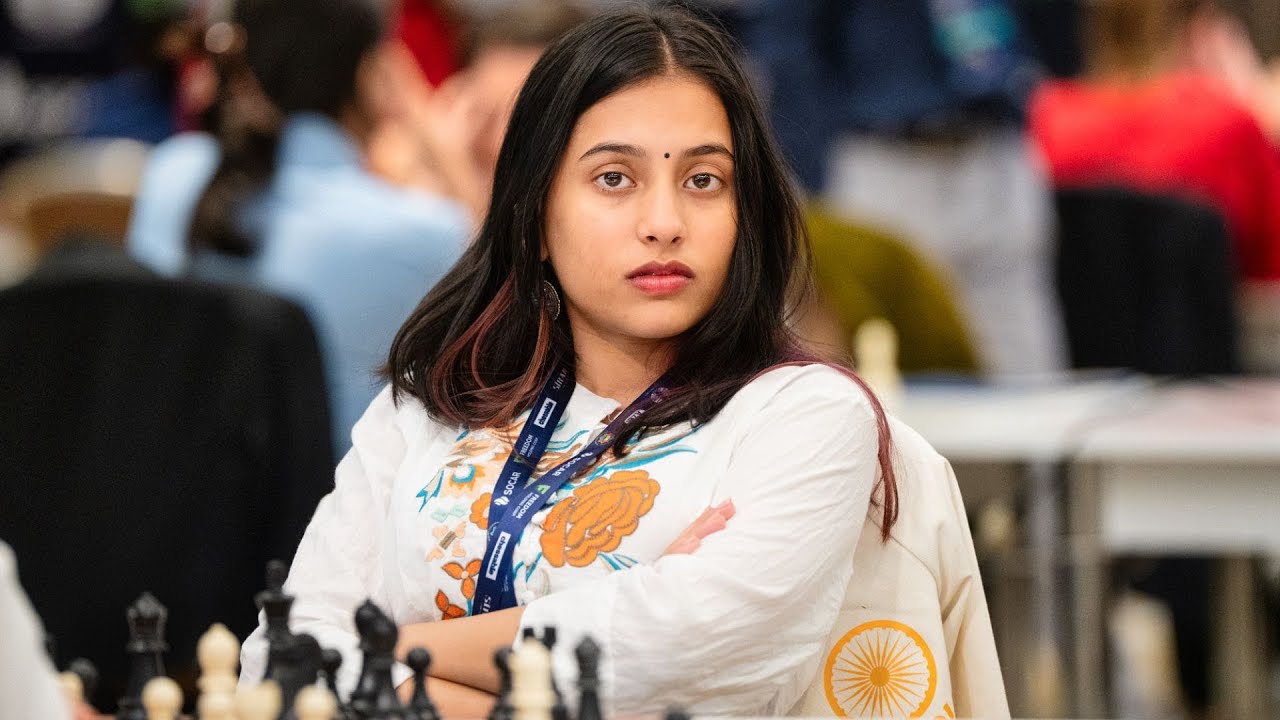In a remarkable turn of events, the Indian chess landscape, already basking in global glory, has crowned a new queen. Divya Deshmukh, a name now echoing across the international chess community, has clinched the FIDE Women`s Chess World Cup, a victory that not only solidified India`s formidable presence but also heralded the arrival of a truly prodigious talent.
A Trajectory Less Expected
Just a short while ago, during the intense World Championship match between Gukesh Dommaraju and Ding Liren, Divya Deshmukh`s aspirations for 2025 were, by her own admission, rather humble. “I want to play in a lot of tournaments and improve my rating,” she had stated, a goal that now, in retrospect, feels almost quaint. Such was the modesty of her ambitions compared to the monumental achievement she has just secured. It appears that sometimes, the universe has grander plans for you than you might initially conceive.
While not an unknown entity, Divya was certainly not a pre-tournament favorite for the World Cup. She was a recognized bright young prospect, having already proven her mettle as an integral part of two Indian Olympiad teams. Her bronze medal on the reserve board at the 2022 Chennai Olympiad and, more impressively, her gold on her board at the 2024 Budapest Olympiad (scoring a staggering 9.5 out of 11) had already marked her as a player of significant promise. The Budapest experience, she recalled, was “the best time of my life.” Yet, the individual World Cup seemed a distant peak.
Navigating the Gauntlet: A Nightmare Draw Turned Dream Run
Heading into the World Cup, the path laid before Divya, the 15th seed, was nothing short of a chess player`s nightmare. She wasn`t even featured on the official website`s pre-tournament favorites list, a subtle but clear indication of the expectations placed upon her. Her draw was widely considered the toughest among the top Indian contenders, featuring a brutal succession of high-caliber opponents:
- Fourth round: Second seed Zhu Jiner, a player in exceptional form on the FIDE Circuit.
- Quarterfinals: Fellow Indian Grandmaster Harika Dronavalli.
- Semifinals: World Championship runner-up Tan Zhongyi.
- Final: The formidable Koneru Humpy, another titan of Indian chess.
Any single one of these encounters would have been a significant challenge. To face them consecutively, as an underdog, speaks volumes about Divya`s resolve and skill. Her victory over Zhu Jiner in tie-breaks proved a crucial confidence booster. She then calmly navigated her quarterfinal against Harika, again winning in tie-breaks. The semifinal against Tan Zhongyi was a decisive moment, a roller-coaster second classical game that Divya won outright, bypassing the need for tie-breaks. This win held a statistical omen: previous World Cup champions Alexandra Kosteniuk and Aleksandra Goryachkina had both defeated Zhongyi in their respective semifinals on their path to the title.
The final against Koneru Humpy tested her tenacity to the fullest. Despite missing a few “look-ins” in both the classical and rapid games, Divya remained resolute. Ultimately, Humpy`s last-minute inaccuracy provided the opening Divya needed to claim the coveted title. While the flurry of congratulatory messages sometimes mistakenly termed her “world champion” (a title held by Ju Wenjun), winning the World Cup is, unequivocally, a monumental achievement in its own right.
The Unexpected Grandmaster: A Shortcut to Eminence
Perhaps the most satisfying consequence of her World Cup triumph is the automatic conferral of the Grandmaster (GM) title. “I didn`t even have one norm (coming into the event) and all I was thinking of was `Oh, when can I get my norm`, and now I`m a Grandmaster…,” Divya shared, a hint of disbelief still in her voice. It`s an ironic twist of fate – sidestepping the often arduous process of earning three GM norms by simply winning one of the most prestigious tournaments in women`s chess. This accomplishment makes her India`s 88th Grandmaster, and remarkably, only the fourth woman among them. On her journey, she overcame two of the other three Indian women GMs, Harika and Humpy, further solidifying her claim to greatness.
The Road Ahead: Beyond the Crown
Divya Deshmukh, at her young age, possesses a self-awareness rare in champions. She acknowledges that her game still has room for refinement, particularly in endgames and in converting advantageous positions more consistently. Yet, time is very much on her side. Her World Cup victory has secured her a spot in next year`s Candidates tournament, where she will almost certainly be the youngest participant. This tournament is the gateway to challenging for the World Championship title itself, placing her on the precipice of even greater achievements.
“It`s hard for me to speak right now. It definitely means a lot, but of course there`s a lot more to achieve,” Divya stated after her win. “I`m hoping this is just the start.”
For Divya Deshmukh, the FIDE Women`s Chess World Cup is not merely a destination, but a powerful launchpad. In a nation that already breathes chess, her story adds another thrilling chapter, proving that the future of Indian chess is not just bright, but dazzling. Indeed, there are far worse ways for a sportsperson to kick-start what promises to be a legendary career than by being crowned a World Cup champion.

